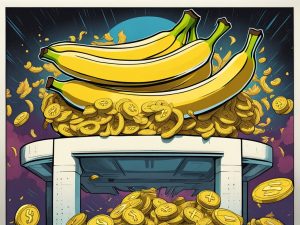Bitcoin Volatility Continues: What You Need to Know
Bitcoin’s volatile trading continues as we close out the week and CNBC Crypto World takes a deep dive into companies looking to use blockchains to change the way people buy real estate. Welcome to CNBC’s Crypto World! Bitcoin investor day in New York City is seeing volatility rule the market as Bitcoin slides to close out the week by noon Eastern. The cryptocurrency tumbled back down to the $63,000 level after investors tested the $66,000 mark just yesterday. Ether, meanwhile, dropped back to the $3,300 level, while XRP slumped to 61 cents. Over the past week, Bitcoin has given up nearly 9%, and Ether has dropped more than 11%. Experts have been preparing for a correction after Bitcoin’s all-time highs, and they say this volatility could last for the next few weeks, at least until the halving. Despite the recent whipsawing, the mood among institutional investors, capital allocators, and entrepreneurs remains largely positive. With more than 500 participants in attendance, crypto leaders from Black Rock, Brevan Howard, Fidelity, and more are discussing portfolio construction, allocation correlation, and the valuation of Bitcoin.
Efforts to Tokenize Real World Assets: A Game Changer?
The main story of today revolves around efforts to tokenize real-world assets, a move hailed by the web 3 community as a way to bring blockchains to the masses. Companies are allowing investors to purchase fractions of real estate on a blockchain, potentially changing how we interact with property ownership. Despite past failures, new companies are emerging with a mission to make real estate investment more accessible. These platforms offer benefits such as:
- Investing in fractional real estate without requiring large sums of money
- Tokenized rental properties for trading on marketplaces
The Benefits of Tokenizing Real Estate
- Lower entry barriers for investors
- Voting rights on property management decisions
- Access to home equity without additional debt
Platforms like Invest Equity are enabling homeowners to sell a portion of their home equity by tokenizing it under a home equity sharing agreement. This lets homeowners access the value of their homes without borrowing money, while giving investors the opportunity to earn from future property appreciation. Through these platforms, homeowners retain residential rights while investors act as silent partners in the property.
Regulatory Challenges in Real Estate Tokenization
While real estate tokenization platforms offer increased liquidity and accessibility, they also face regulatory challenges. Some platforms have taken a cautious approach by limiting investments to accredited investors and financial institutions to ensure regulatory compliance. The industry is navigating the definition of securities and compliance with US regulations, particularly following the SEC’s actions against crypto firms post-2022 meltdown.
The Future Impact of Real Estate Tokenization
Real estate tokenization holds the potential to transform how we invest in properties, offering new opportunities for both investors and homeowners. However, the long-term impact on communities, affordability, and the traditional benefits of ownership remains to be seen. As the industry evolves, it will be crucial to address concerns around affordability, governance models, and regulatory compliance to ensure a sustainable and inclusive real estate market.
Hot Take: The Bottom Line on Real Estate Tokenization
The rise of real estate tokenization presents exciting opportunities for investors and homeowners alike, but it also raises important questions about affordability, regulation, and community impact. While fractional ownership offers new pathways to property investment, stakeholders must navigate regulatory challenges and consider the long-term implications of tokenizing real-world assets. As the market continues to evolve, finding a balance between accessibility and sustainability will be crucial for shaping the future of real estate investment.





 By
By
 By
By

 By
By
